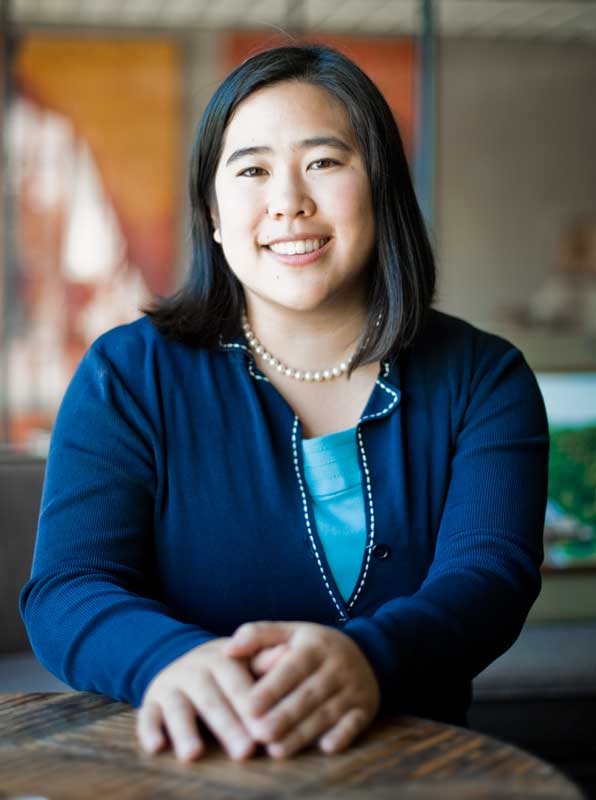Mayor of Fitchburg, MA: Lisa Wong
In November 2007, residents of Fitchburg, Massachusetts, overwhelmingly elected Lisa Wong, a 28-year-old political novice and the daughter of Chinese immigrants, as their first minority mayor in the city’s 243-year history. This November she’s running for re-election. “My parents left China in 1970. They came because they wanted to have a family and they wanted […]

As the former director of Fitchburg’s Redevelopment Authority, Mayor Lisa Wong is spearheading the long-term economic recovery of this venerable industrial city. Her goals include the revitalization of downtown, while preserving its historic character.
Photo Credit : Fasten, LeahIn November 2007, residents of Fitchburg, Massachusetts, overwhelmingly elected Lisa Wong, a 28-year-old political novice and the daughter of Chinese immigrants, as their first minority mayor in the city’s 243-year history. This November she’s running for re-election. “My parents left China in 1970. They came because they wanted to have a family and they wanted to create opportunities for their children. Their focus was on the future, so they didn’t talk a lot about the past, but they would sometimes tell stories about how they grew up poor–my mom dealing with urban poverty in Hong Kong, for example.
“My father had two Chinese restaurants, one in Cambridge and then one in Haverhill. Both were on main streets, and so that’s where I formed this great love of urban areas. I also got to see what happens to a place, as it did with those two cities, when a lot of good manufacturing jobs leave an area. The disparities between people’s economic circumstances were evident. But then I also saw what happens when a city like Cambridge evolves and changes.
“My parents didn’t say that having an opportunity means you have to be a doctor or a lawyer or an engineer. To them, opportunity meant you receive an education and you have control over what you want to do with your personal and professional life. I sort of took that to the extreme and said, Okay, if I have infinite opportunities, then what I want to do is to create opportunities for other people.
“We’ve lost something like 8,000 manufacturing jobs [in Fitchburg] since the 1960s. That’s a huge number. That’s hundreds of millions of dollars in salaries. That means those people are not redoing their kitchens. They’re not doing their taxes on time or going to local restaurants.
“There’s been talk here about what that magic is to turn things around. What is that big thing? Is it a sports stadium? Is it a congressman [or senator] like a Paul Tsongas, who brought in all that money to Lowell?
“But what people don’t understand is that to get it done, it’s really a series of a thousand small steps. And you have to do them all. When you do that, you see progress. But if you’re going to sit around waiting for the next big thing, you’re going to see a decline. Which is what we’ve seen.
“The vision for a place like Fitchburg has to be comprehensive. I translate it into thinking about a 24-hour day. What are you doing? You’re sleeping, you’re eating, you’re working, you’re walking, you’re talking to people. So creating safe, walkable streets is just as important as creating a cultural venue. Having local restaurants where people know your name–these are things you experience day in and day out. And they help change the psyche.
“We were once a city that was really prosperous. We had two sitting senators here. We had trains coming in and out of here every day. We have the space, the layout, and infrastructure. And we have some people who remember how great it was. I go to the senior center and hear them talk about what was once here and I’ll say, ‘You had all the things I want!’ I said this to a couple of counselors after a meeting: ‘I want what you had as recently as the 1980s.’ It wasn’t that long ago.”
“My Chinese name is ‘Soo Fun.’ I was at an assembly at a school and I said, ‘Whenever you hear the name “Wong” or “Mayor,” I need you to say, “Soo Fun.”‘ So now whether I go to a fundraiser, or a supermarket, if somebody says, ‘Mayor,’ I’ll hear someone say, ‘Soo Fun.’ I love it.”
Read complete interview: Lisa Wong


